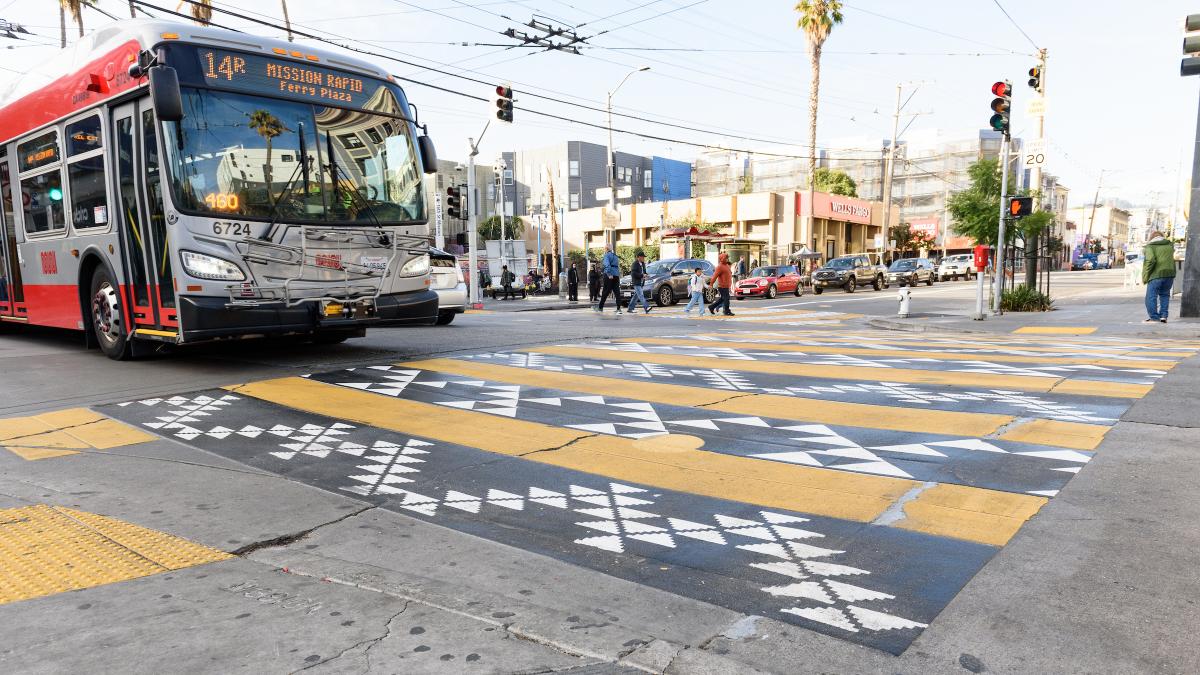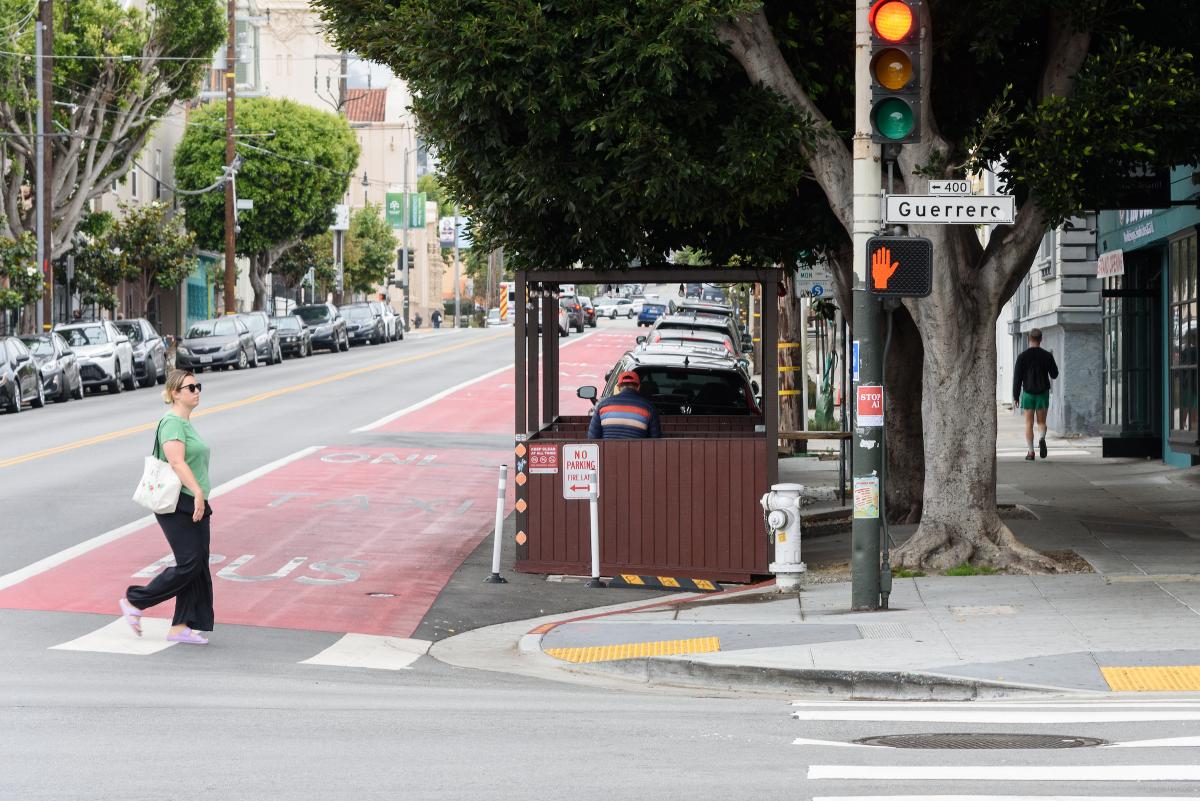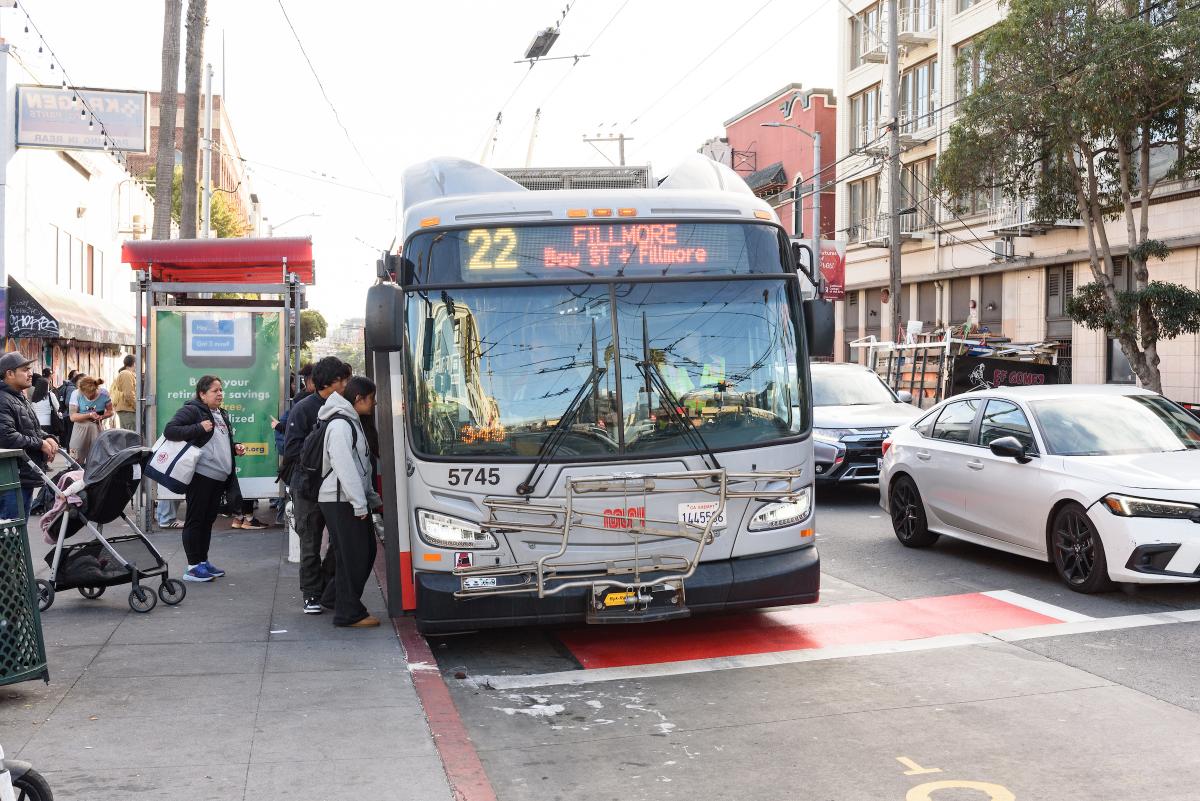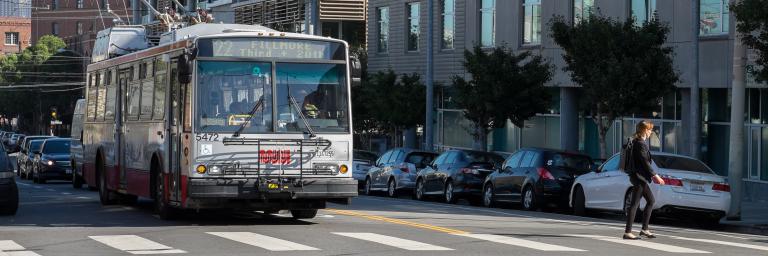The 22 Fillmore serves over 22,000 daily riders, but it used to travel at less than 4 miles per hour on parts of 16th Street. The 16th Street Improvement Project implemented several community-informed improvements to make the 22 Fillmore faster, safer, more accessible and more reliable. These included transit lanes, transit bulbs, new traffic and pedestrian signals and new streetscape amenities. This project was part of the Muni Forward program, an ongoing initiative to create a safe, reliable and comfortable experience on and off transit.
The project was split into two phases – the first phase, from Potrero Avenue to 3rd Street, was completed in 2020. The second phase, between Church Street and Potrero Avenue, was completed in 2025.
Project Accomplishments
- Improved reliability and travel time of the 22 Fillmore for the 22,000 daily riders by 15% in the project area
- Improved safety features on 16th Street for people walking, bicycling, and driving
- Upgraded aging sewer infrastructure with the addition of water infrastructure improvements for Phase 1 east of Potrero Avenue
- Facilitate zero-emission transit service to connect the Mission Bay neighborhood to the Mission
The project also replaced old underground water lines (Phase 1, 16th Street from Potrero Avenue to 3rd Street only) and sewer lines.
To provide zero-emission transit service into Mission Bay, the project extended the overhead contact system (OCS) that powers trolley buses on 16th Street from Kansas Street to Third Street. This allowed the 22 Fillmore to be extended into Mission Bay. Additionally, new bike lanes have been added to 17th Street to create a continuous route from Mission Bay to the Mission neighborhood.
Along with the important improvements to 16th Street, the eastern end of the 22 Fillmore route shifted to serve the growth in jobs, housing and hospitals in Mission Bay. A replacement route, 55 Dogpatch, was created through a community process that ensured service was maintained to Potrero Hill and the Dogpatch areas.
Project Benefits

A 14R Mission Rapid approaches the decorative crosswalk at 16th and Mission streets.

The transit-only lane and corner bulbouts improve transit reliability and pedestrian safety.

Bus bulbs improve boarding for passengers and pedestrian safety.
Improved Transit Reliability and Travel Time: Dedicated transit lanes help buses bypass traffic, reduce delays and make for a smoother ride. Sidewalk extensions at bus stops (bus bulbs) provide more space and allow passengers to board quickly without buses having to leave the travel lane. And bus stop changes, like removing some closely-spaced stops and moving others to the far side of the intersection, help improve travel time and reliability.
Safer Streets: Sidewalk extensions at intersection corners (pedestrian bulbs) shorten the distance for people to cross the street and encourage cars to take turns more slowly. New high-visibility crosswalks help alert drivers to pedestrians.
New Streetscaping: The corridor was enhanced with new trees, landscaping, unique sidewalk designs and fresh bus shelters with locally themed images. Sickly or unsafe trees were removed and replaced by an over 3-to-1 ratio, adding a total of 101 new trees along the corridor.
Utility Improvements: In coordination with San Francisco Public Utilities Commission (SFPUC), aging sewer mains were replaced from Dolores Street to South Van Ness Avenue.
- Completed
